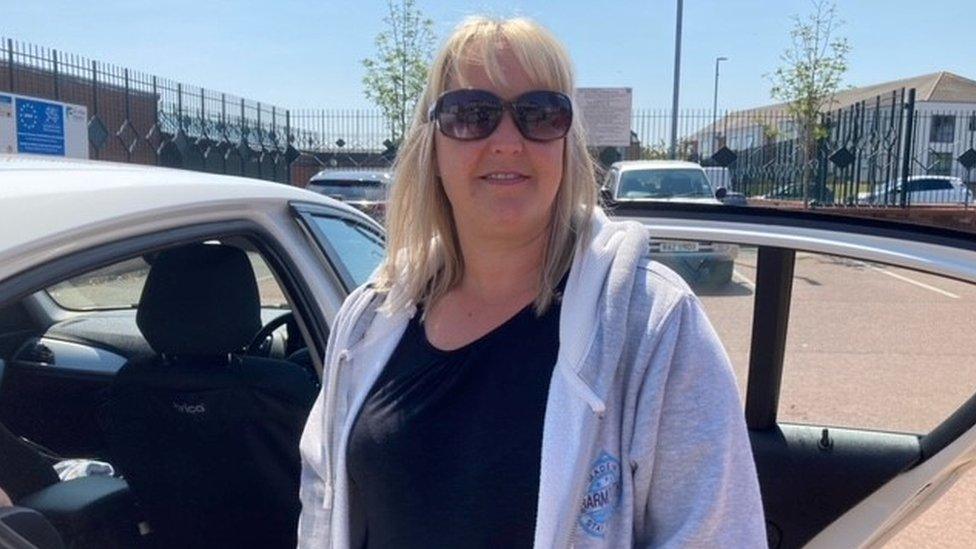Speed limits: 20mph row will be seen as fuss over nothing - Labour minister
- Published
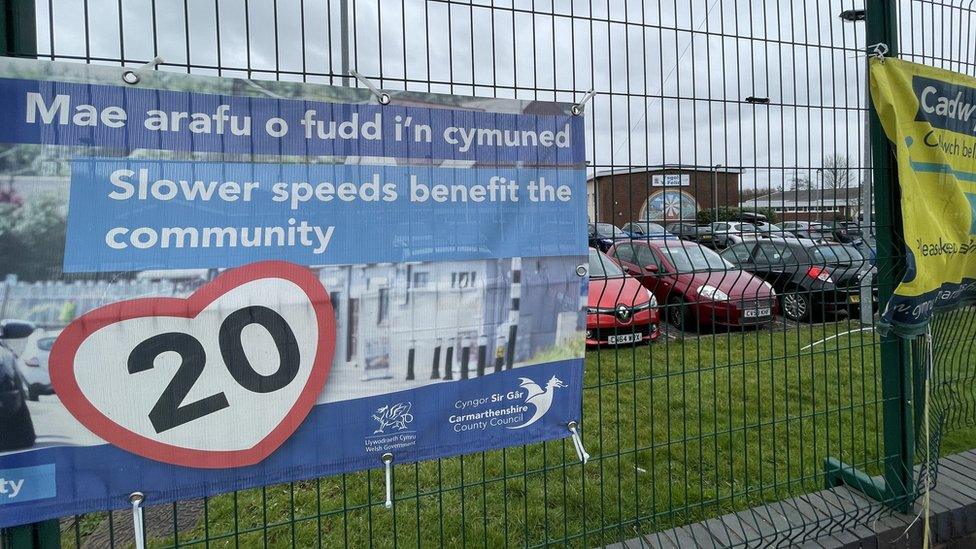
There have been trials across Wales
The minister at the heart of a switch to 20mph in residential areas says in a year's time people will think it was "a lot of fuss about nothing".
The comment was criticised by Lee Waters' own Labour colleague in a debate on plans to reduce speed limits from 17 September.
A petition signed by 21,000 claimed it could lead to an increase in road rage.
But Lee Waters said he expected attitudes to driving slower to change.
He later admitted his comments had been "clumsy".
The deputy minister for climate change said reducing the speed in towns and cities from 30mph to 20mph would help build safer communities.
The Welsh government cites figures from Spain where the speed limit on most roads was reduced to 30km/h (18.6mph).
It said the country had reported 20% fewer road deaths.
Residents have mixed views about 20mph speed limit zones in residential areas
On Wednesday the Welsh Parliament debated a petition led by Ben Watkins which said the switch to 20mph could "lead to an increase in road rage incidents".
The debate, which cannot stop the changes from happening, was triggered by the number of people who signed it.
The 23-year-old recent university graduate from Treorchy, Rhondda Cynon Taf, said: "Within built up areas, it is understandable to have a 20mph limit when there's heavy pedestrian use of the roads.
"But in areas like the valleys, where a lot more people do have to commute to Cardiff... 20 is going to be too low and cause a lot more traffic in these areas."
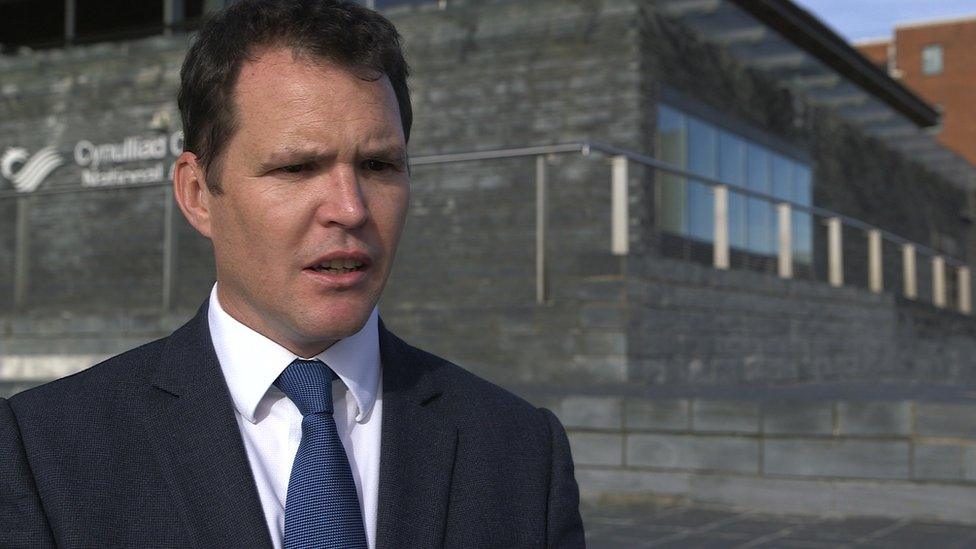
Lee Waters has defended his plan to switch speed limits in residential areas to 20mph
Speaking to BBC Wales News Online, Mr Waters said pilots for the scheme had not led to an increase in road rage, saying that had not been the case in Edinburgh.
"When you start to drive at 20 it feels really slow and really weird," he said.
"We think as people adjust to the change, and it becomes commonplace and normal, and the ripple effect of people going slower kicks in. People's attitudes will change.
"I think in a year's time we will look back at this and think it was a lot of fuss about nothing."
The latter comment prompted Caerphilly Labour MS Hefin David to say, during the Senedd debate: "I think that does a disservice to this petition. I think it does a disservice to those of us who have concerns."
Asked in an interview with BBC Wales Live if his comments helped with the messaging on the policy, Mr Waters said: "No, that was clumsy.
"The point stands, but it was a clumsy way to say it."
The changes do not abandon 30mph entirely and councils can make exemptions for roads so the 20mph limit does not apply there - with guidance for how that can work.
The Welsh government said exceptions would typically be on less built-up streets and where people walking and cycling do not need to share space with motor traffic.
But Mr David warned that where concerns were raised about a road's speed he would be "coming up against a brick wall" because Welsh government rules would not allow roads to be kept at 30mph.
"I think that is where this policy is in danger of becoming difficult to introduce and difficult to enforce, because you have to do this by consent and carry people with you," he said.


Annemarie Thomas says she supports 20mph zones around schools but not elsewhere
Caldicot in Monmouthshire is one of the areas in Wales that has seen a pilot, although two roads in the town were removed from the scheme after concerns 20mph made congestion worse.
Sean Ford, who lives in Cardiff but commutes to Caldicot, said a lower speed limit would have meant an extra hour to get home.
"I think it'd be more pollution with a build-up of traffic with the slow movement of the vehicles," he said.
"All it's going to do is cause a lot of congestion."
Annemarie Thomas said she did not think it should be a blanket rule across Wales: "If it's around schools, yeah. If it's not, why has it got to be 20?"
Louise Bowe agreed: "I understand around schools that it should be 20mph but not other places."
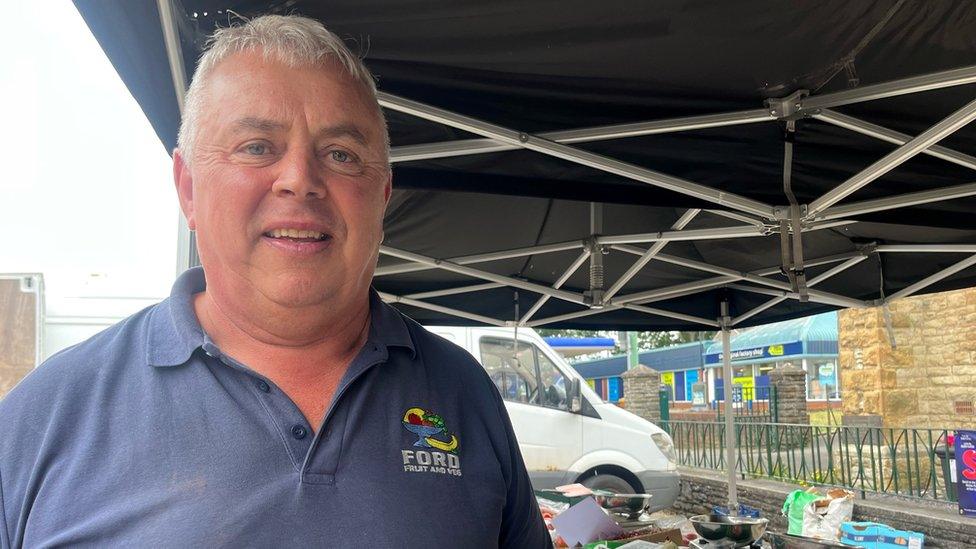
Sean Ford said he believed the 20mph limit was adding to his commute
Earlier, chairman of the petitions committee and Labour MS for Alyn and Deeside Jack Sargeant called on Lee Waters to give "absolute" assurances to councils that they can change roads from 20mph to 30mph should they need to.
Natasha Asghar, Conservative transport spokesperson, told the Senedd that she had been regularly contacted about the new policy: "Businesses don't want them, residents don't want them."
Lee Waters accused the Conservatives of being "deeply opportunistic and deeply disingenuous".
He told the debate that highways authorities "can make exceptions if they have a clear and reasoned case".
He said councils are "often risk adverse, they like black and white and they want to have the cover of the Welsh government's guidance".
"Some of them have been very conservative about applying exemptions, Rhondda Cynon Taf for example have applied many exemptions."
He finished his speech predicting the changes will "save lives, cut noise reduction, improve levels of active travel and strengthen our communities".
Earlier in the debate Plaid Cymru's Llyr Gruffydd said while he supported the 20mph default "on the basis of course that it will save lives, that it will reduce casualties", there were "roads away from built up areas… where I do question whether a 30mph limit would be much more appropriate"
But Joyce Watson, Labour MS for Mid and West Wales, told the Senedd she began campaigning for 20mph speed limits after she had spoken "to bereaved family when a child had been killed in my area on a by road traffic accident".
"Let's bring it right back to the reasons that we are here today, and the debate that's taking place because it does and will save lives."
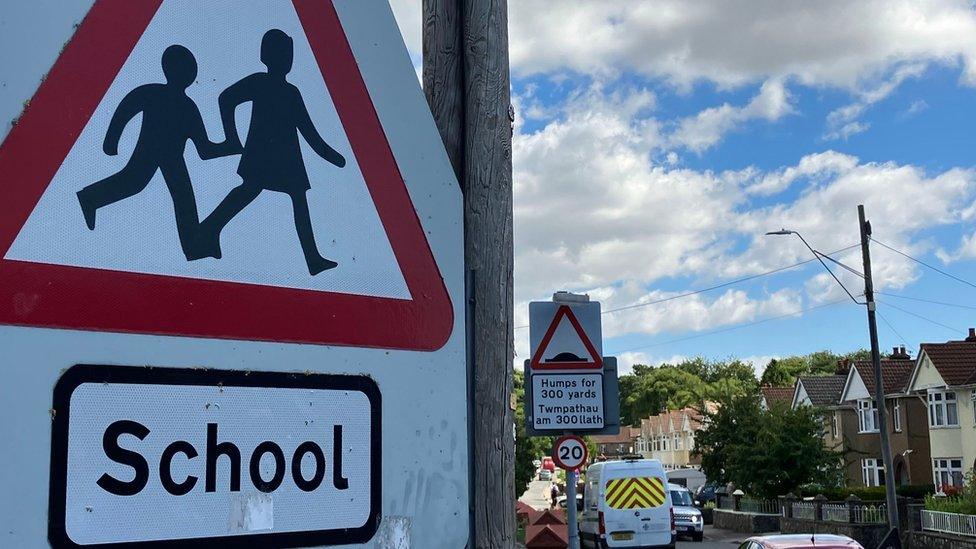
Many people think the 20mph road speed limit makes sense outside schools but not elsewhere
Chief Constable Amanda Blakeman said a period of "grace and education" would be needed to support people and communities through what she described as a "significant" change in road rules, the Daily Post, external reported.
Meanwhile North Wales Police's highest ranking officer has warned that drivers caught speeding over 30 mph in new 20 mph zones could face tough penalties.
The Welsh Local Government Association said: "Reducing the default speed on restricted roads will save lives and help build safer, stronger communities.
"Councils have been provided with funding and support to prepare for the change and are all making final preparations ahead of the change."
- Published5 June 2023
